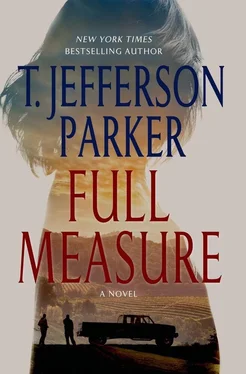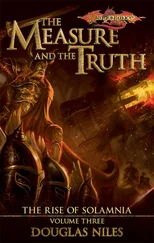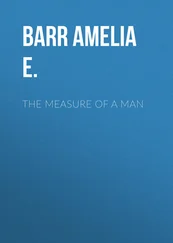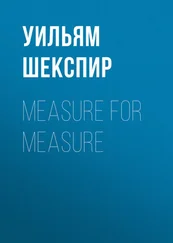Salimony’s leg bounced and he drained his beer and crumpled it and got out another.
“He was honored at the Three-Five memorial at Pendleton,” said Patrick. “Two of his best friends spoke about him. I didn’t see you there.”
Raydel nodded and sipped his beer. “We decided not to go,” he said. “It is a very long way.”
“It’s only about six hours from here,” said Messina.
Raydel looked at him and Theresa stared down at the deck. Then she looked at Patrick and he saw she was fighting something back. “We have no papers. When we go somewhere there is the chance we will be stopped and deported. The Marine base would be very dangerous. Here, people know us and we are safe. So we don’t go away from here.”
“Half the laborers in Fallbrook are illegal,” said Patrick. “It’s a tough way to live.”
Alejandro’s father set his can on the deck and crossed his hands on his lap. He had the relaxed, conservative movement of a man who had worked his life outside. “Alejandro was born in Tijuana. We brought him here when he was one year old. I always have work because I know farming and I work very hard. But he did not want this. He wanted something better. He join the Marines because he wanna become a citizen here.”
“He wasn’t even an American citizen?” asked Salimony.
Raydel and Theresa both shook their heads. “We have three more children,” she said. “And they were born here so they can always stay. But Alejandro, he live under the same fear we have. He wanna be a cook.”
“They should make him a citizen even though he’s dead,” said Salimony. He upended his can and drank the last drop.
“I wondered about such a thing,” said Raydel. “But I don’t want to cause attention. My other son, he’s gonna join too when he’s old enough. He don’t like to work but he wants to fight.”
“Well,” said Salimony. “Alejandro is a citizen of my country no matter what nobody says. He made me some kind of soup when I got sick over there. God knows where he found anything good to put in it. A whole pot of it, enough for me and ten other guys. I didn’t get why Alejandro wouldn’t stand up for himself. He was older and us young guys kinda pushed him around. Four or five of us jumped him one day, roughed him up good. It’s for fun, but he acted like he wasn’t there. Now I get it — he was afraid if he fought back they’d find out and toss him out of the country when he came home.”
“There is a program for those who come home to be citizens more quickly,” said Theresa. “That was his plan. Then to open a restaurant.”
Raydel had the same thousand-yard stare that Bostik seemed to have so often. Patrick looked at the picture of Alejandro, then stared down into the opening of his beer can and tried to banish the image of pink brains on a tan wall behind a barbecue. He was thankful that Alejandro’s dad didn’t have to see that.
The morning was the coolest of the month and Ted felt winter in his feet. His task was to strip off the herbicide-tainted paint he’d put on some eighty tree trunks. Archie patiently demonstrated how to use the pressure sprayer, cautioning Ted that a direct ninety-degree blade of compressed water would cut into the tree surely as an axe. Archie fired away at an angle, “lifting” off the possibly poisoned paint that Ted had applied. “If the bark starts coming up, your angle’s wrong.”
“I got it, Dad.”
“I’d like to get a full day of work out of you.”
“Moving the compressor will be pretty hard on my feet.”
“You think the compressor is heavy, Pat and I will be lugging bales and putting down straw.”
“The compressor is heavy, too.”
Ted grunted and as he pulled the heavy wheeled contraption tree to tree over the leafy, ash-frosted earth. He got the thing going but the pressure seemed insufficient so he put on a different nozzle. And sure enough, once he got the hang of it the paint came right off. He was surprised how thick it was and found it hard to believe he’d failed to triple rinse the spray canister. He had no knack for practical physical things. Ted put in his earbuds and cranked up Cruzela Storm. A voice like new motor oil, he thought, clean and smooth and durable, and a similar color, too. Her main theme was, keep going in adversity, keep your cool, and your faith. Her subtheme was, people will try to take what’s yours, so learn to stand up for yourself.
He moved beneath the spindly naked canopies. Lifting off the dried paint took longer than spraying it on in the first place, but Ted worked diligently. He stopped now and then to lift rocks to see what creatures were living underneath. He caught one big tarantula, one small scorpion, and an alligator lizard, and put them into separate cottage-cheese containers with air holes punched in their lids. He had always loved unlovable things. They were humble and expected nothing, though some of them packed secret stings and poisons. He set the containers in the shade of the truck and got right back to work.
Later, close to lunchtime, through the music streaming into him, Ted suddenly and clearly heard the sharp report of his father’s voice. He lifted off one bud.
“Goddamn son of a BITCH!”
Ted dropped the nozzle, yanked off the earbuds, and pawed open the low-hanging branches in the direction of the yelling. Through his sweat-and-soot-smudged goggles he could see Archie far downhill of him, and Patrick a hundred yards to the east. His father stood looking at Ted with both arms out, palms raised in an unmistakable question: What in the hell is this? Could he have found a cool snake?
Ted burst through the black limbs and hustled down the slope, sidling down the steep granite escarpments, his feet swaddled in pain but soon he was standing before his father, panting. He stripped off the goggles to see what Archie was holding in his outstretched hand. It was one of the thick slabs of dried paint that Ted had lifted from the tree.
“Paint, Dad!”
“This isn’t paint, Ted. It’s bark! Formerly living bark! You’ve killed thirty trees today, son. Congratulations.”
Ted took the white fragment and turned it over. The inside was colored a very pale green that suggested life. The whole thing was no thicker than half an inch. He held it up closer to make sure it wasn’t just paint. But he could see that it was not.
Patrick arrived and took the bark from Ted and saw the problem. “Took off a bit much here, brother.”
“I thought it was paint, Pat. I swear.”
“Christ all mighty, Ted!
“Screaming doesn’t help,” said Patrick.
“Nothing helps!”
“Then stop being an asshole,” said Patrick.
Archie glared at his sons, Patrick and Ted, in turn.
“I didn’t mean it to happen, Dad,” said Ted. “It was an accident.”
“You’re both worthless.” Archie snatched the painted bark from Patrick and backhanded it against Ted’s ample belly, off which it bounced. Then Archie shook his head and turned and headed muttering toward the trucks.
Ted closed his eyes and clutched his arms tight to his chest and began turning counterclockwise.
Patrick grabbed him by the shoulders and slowed him and held him in place. “Goddamnit, Ted — that won’t do you any good. You can’t just go away.”
Ted closed his eyes tight and waited for liftoff.
Ted switched jobs with Patrick and worked furiously through lunch, breaking apart the heavy bales and spreading the straw under the trees with a pitchfork. Occasionally he stopped to watch Patrick removing the paint from the tree trunks, and from this distance Ted couldn’t see what his brother was doing differently than he had. It looked as if Patrick had switched nozzles, and that was about all. But the real difference, thought Ted, is Pat won’t create a disaster. Pat will do it perfectly. Ted snapped through another nylon tie with the heavy cutters, threw the pieces into the back of the pickup, then rammed the pitchfork into the bale, broke off a load, and heaved it under a tree.
Читать дальше












